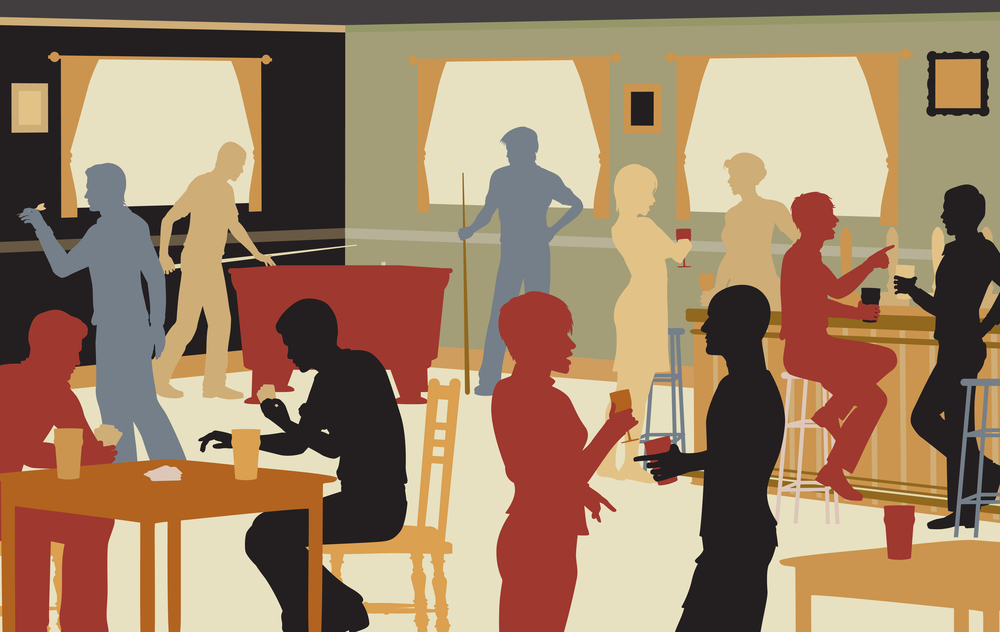


Whether it’s allegations against John Besh and the “bro culture” in the back of house, to inappropriate behavior from guests, we feel like the subject deserves an in-depth conversation with some outspoken voices in the industry. We interviewed three industry advocates and activists who work to educate people about how to correctly address sexual harassment to get their take on how to address sexual harassment in the bar and restaurant industry.
The following has been edited for clarity.
Twenty-seven years.
A decade, but inconsistently until the last 8 years.
I was raised into it. If we get less literal about it, I have been professionally working in bars and restaurants since 2002.
I honestly hadn’t seen much change until recently and it’s not so much a change. It’s just that people are starting to talk about it openly and realizing it needs to change.
The extent to which it’s changed is really more due to the change in venues I’ve worked in as opposed to the larger culture. The instances aren’t necessarily going down; it’s just that more incidents are being reported. There’s a lot of dehumanization that’s evident in both the employee-guest exchange and the all-powerful management structure we tend to have—those constants makes a change in the culture really difficult to achieve.
In the last, say, six years or so, rumblings turned into conversations within the Portland and Seattle bar communities. These conversations led to people sharing their stories and it kind of spread from there. Now, we’re in a place where there are multiple groups of people all over the country openly talking about this real problem. It’s a very exciting time to be in this industry as someone who cares about issues of equality at large.
I’m constantly educating myself. I do my best to stand up for victims and try to figure out ways to effect change, like sponsoring educational seminars run by experts.
I’ve put together plenty of seminars and talked around the world addressing this issue. I’ve done tons of fundraising, raised thousands of dollars, had conversations with people, and helped identify date rape situations. But, honestly, I don’t know if I can answer how I’ve changed it, because I don’t know if I have. Maybe a handful of people, but who knows. Culture change is a mostly intangible pursuit.
Moving into management at event spaces/night clubs, my eyes were thrust wide open to this behavior. Not only did I see sexual harassment and assault happening, I saw it on a nightly, almost hourly basis. I ended up sitting down with both ownership and our security staff to let them know what we were not going to tolerate it. We had to expand to not only looking out for intoxicated or physically aggressive people, but sexually aggressive, predatory people as well.
Honestly, we have to change the entire bar/restaurant culture. Sexual harassment training needs to be updated and required by law. We have to address behaviors in the moment, which means managers need to be trained in supporting and believing their staff, whether the harassment is coming from another team member or a guest.
The single biggest thing I’ve witnessed is how intractable and omnipresent this thing really is in our culture. We held a seminar at the USBG conference; at the time, nobody ever had professionals in the room for these conversations, but we brought in three and had almost a dozen on-hand to talk to people afterwards. We were able to say, “This is credible and the safest space we could possibly create to engage this.” But, after the 2 hours, I’ve never felt air as charged as I did in that room, and we only just did awareness. No matter how it’s achieved, this industry needs more awareness around this issue.
Holding yourself and your peer group accountable is really important. I forced myself to analyze my own actions and found the results to be disheartening. I realized I had not done enough of the actual hard work of looking at my own behavior and that there are plenty of things on a micro level that enable the culture on a larger scale. We cannot change things systematically without admitting that we were checking out the new hire, casually dismissing an ex as “crazy,” or allowing someone else to make one of a million similar comments.
Get trained. You can’t really be supportive if you don’t have the right tools to help you deal with victims. You may think you’re doing the right thing when in fact it’s just the opposite. My advice would be to have professionals come in and train your whole team.
As the leader, you don’t get to wait for things to go sour. Start educating yourself and stop thinking you’re an expert. Don’t keep it in house and get an expert to work with you on it. Show your support and how far you are willing to go to make sure everyone is happy and safe. What could possibly be the excuse for not doing that?
Have a plan in place beforehand. I can’t stress the importance of having policy with clear actions in place before you have to deal with an incident in your restaurant. Once you are already there though, support your staff by believing survivors. If they want to make a report with law enforcement, offer to go with them. If they need to go get a restraining order, go with them. If they aren’t comfortable with that, make sure you have the people who can.
Thank you to our panelists. I hope all of us in the industry can take away some actionable next steps from this conversation. Mark said something to me that ends us on a good note, “Putting in the work to really see somebody is the most important thing you can do to foster positive change in someone else.”
Here are some resources to help further tackle sexual harassment in the industry:
How To Combat Sexual Harassment
Safe Bars Training
Bartenders Against Sexual Assault
We’d like to hear from you: How have you worked to stop sexual harassment at your bar or restaurant?
Schedule 15mins to chat with a product specialist
Start a FREE Trial Today! BevSpot offers full product education and account setup for all customers! No card Information needed!
